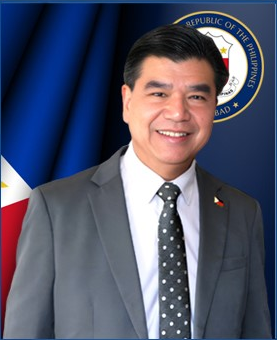by Dr. Emmanuel R. Fernandez
As ASEAN celebrates its 58th founding anniversary this year, it is timely to reflect on how this Southeast Asian regional bloc—home to over 680 million people and the world’s fifth-largest economy—is engaging with countries beyond its immediate neighborhood. One of the most promising of these partnerships is with Pakistan.
Since becoming ASEAN’s Sectoral Dialogue Partner in 1993, Pakistan has consistently demonstrated its commitment to stronger engagement. This was formalized through the 2019 ASEAN–Pakistan Sectoral Dialogue Relations Framework, which set out clear goals for cooperation across trade, education, people-to-people exchanges, among others.
The Philippines, as a founding member of ASEAN, places great importance on this ASEAN-Pakistan relationship. In an increasingly interconnected Indo-Pacific region, traditional security concerns are now compounded by climate risks, economic shifts, and digital disruption. Strengthening ASEAN–Pakistan ties is essential to ensuring a more stable and prosperous regional order.
Turning Dialogue into Action
Since I assumed my post in Islamabad earlier this year, the Philippine Embassy has worked closely with other ASEAN missions to help turn ASEAN–Pakistan cooperation from aspiration into action.
On the economic front, we have initiated high-level dialogues between ASEAN diplomats and Pakistani institutions such as the Federation of Pakistan Chambers of Commerce and Industry. These engagements have explored opportunities in Halal certification harmonization, agri-tech innovation, and post-harvest technologies.
In December 2024, Pakistan offered to export up to one million metric tons of rice annually to the Philippines—potentially covering a quarter of our national rice import needs. This proposal highlights how practical, mutually beneficial trade ties can address food security on one end and market access on the other.
We have also promoted two-way trade through events like the 2025 Health, Engineering and Minerals Show (HEMS) in Lahore, where Philippine business leaders connected with their Pakistani counterparts in industries ranging from pharmaceuticals and surgical tools to automotive parts and minerals.
Building Bridges Beyond Business
But economic ties are only part of the picture. Lasting partnerships are built on understanding and shared values. That is why we have invested in cultural diplomacy and academic exchange—bringing ASEAN to audiences in Islamabad, Lahore, and Karachi through film screenings, lectures, and forums on regional cooperation.
One such event, organized in collaboration with COMSATS and the Institute of Peace and Diplomatic Studies, featured a lecture on ASEAN’s unique model of consensus-building and inclusivity—values that resonate strongly with Pakistan’s own aspirations for regional peace and development.
In partnership with NUST and COMSATS, we have hosted dialogues on ASEAN’s political and economic integration, especially in the wake of the COVID-19 pandemic. These engagements are aimed not only at policy professionals, but also at Pakistan’s future leaders—its students and young scholars.
To support long-term academic exchange, we helped establish the ASEAN Corner at the Institute of Strategic Studies Islamabad (ISSI), offering curated resources on ASEAN diplomacy and integration, including materials contributed directly by the Philippines.
Moving Forward, Together
Mobility is another critical part of people-to-people diplomacy. In 2024, the Philippine Embassy in Islamabad processed more than 2,000 temporary visitor visas. In just the first half of 2025, that figure has already been matched—showing a growing appetite for exchange between our nations.
Looking ahead, the Philippines is committed to supporting the deepening of ASEAN–Pakistan cooperation through several key initiatives:
Strengthening university partnerships and youth programs such as ASEAN Study Circles;
Issuing joint statements and communiqués that highlight ASEAN’s relevance to Pakistan’s evolving foreign policy priorities;
Sustaining policy dialogues with think tanks like the Institute of Strategic Studies–Islamabad (ISSI) to address shared concerns in climate change, regional security, and digital transformation.
A Shared Future in the Indo-Pacific
The ASEAN–Pakistan relationship is not merely a diplomatic formality. It is a platform for practical collaboration in a rapidly changing Indo-Pacific region. As we navigate challenges that no country can solve alone—whether it is climate vulnerability, economic uncertainty, or cyber threats—there is great value in investing in partnerships that prioritize cooperation, inclusion, and mutual respect.
The Philippines remains fully committed to working with Pakistan and our fellow ASEAN members to build a peaceful, resilient, and forward-looking regional community. As we mark ASEAN Day this year, let us walk together as partners in building a future that benefits us all.
The writer is the Ambassador of the Republic of the Philippines to Pakistan

















